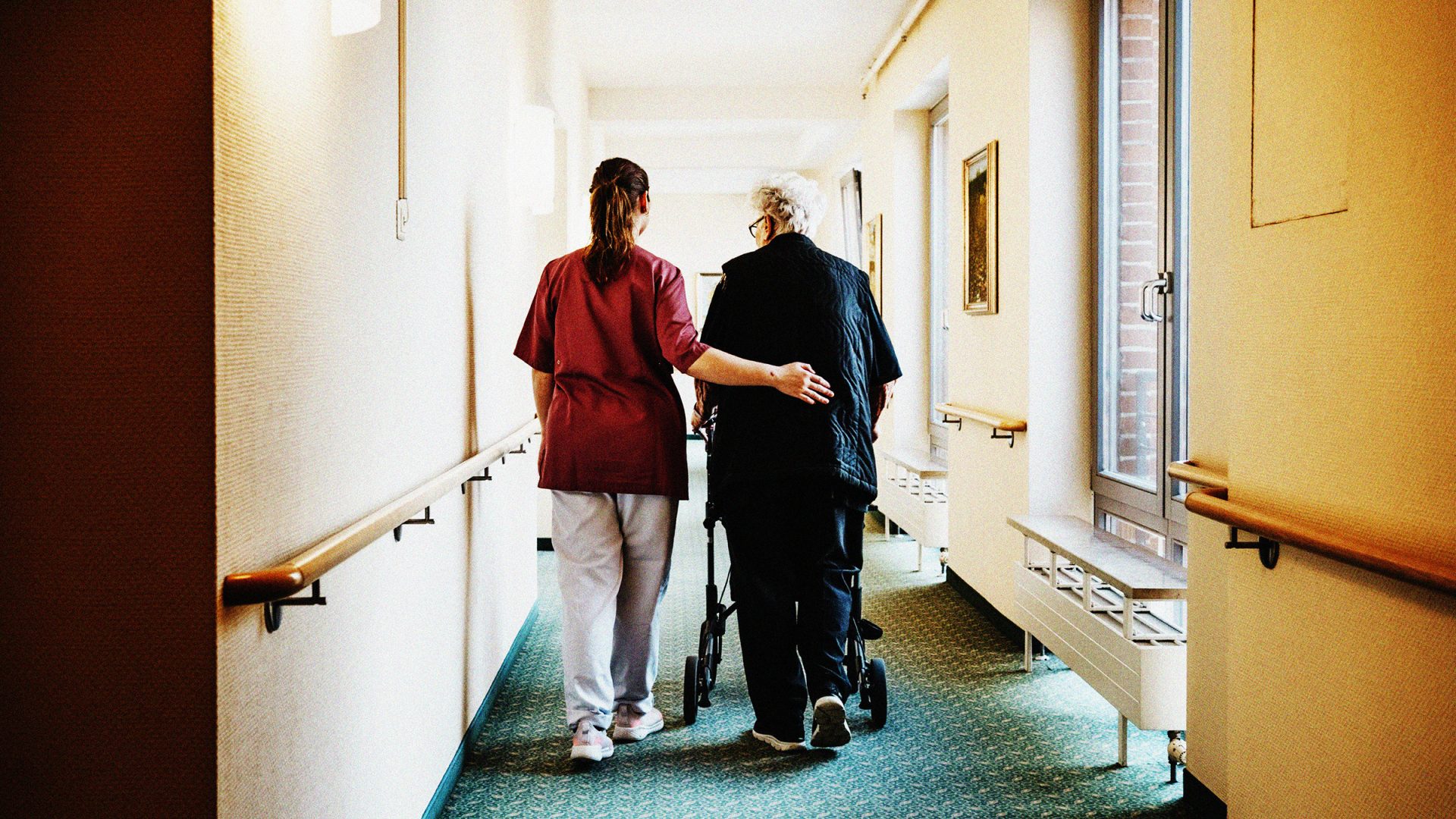Dr Elizabeth Stephens owns and runs a care home in Lincoln. When I chatted to her about the government’s latest immigration policy she was spitting nails.
As he tries to stall Reform’s surge with a crackdown on visas for lower-skilled workers, Keir Starmer has decided that care homes will no longer be able to recruit from overseas. For Dr Stephens, this is madness.
Before Covid she employed four eastern Europeans out of a staff of 47, but they didn’t return after the pandemic. Now 60-80% of her staff are either of Indian or African background. Without them, she explains, she wouldn’t have a business at all. “If we cannot sponsor visas or recruit overseas staff, we cannot run a care home,” she says.
Dr Stephens is not alone in that analysis. Dr Jane Townson OBE, chief executive of the Homecare Association agrees. She represents carers who look after people in their own homes, a sector that employs more people than care homes, and says: “The government has pulled the rug out from under our feet. It feels like this is a kneejerk reaction to Reform’s success in the local elections, and without a plan”
In the last two years 70,000 British carers have left the workforce and yet we know that by 2040 we will need another 540,000 additional care workers as the population ages. Already 25% of the care workforce are immigrants, and the industry estimates it will need 540,000 additional care workers by 2040 to meet rising demand.
Dr Townson is very doubtful that local British workers will turn up in anything like large enough numbers to fill that gap. “It’s really difficult,” she told me. “Half of British applicants don’t even turn up for interview, they just apply to keep getting benefits, they have no intention of turning up.“
But it is not just a matter of gaming the system. Unison’s head of social care Gavin Edwards says, “While hourly pay rates remain stuck just above the legal minimum and zero-hours contracts are commonplace, the care sector isn’t an attractive career choice. People know they can earn more delivering parcels or making coffees on the high street”.
Another problem is that the workforce that is currently available mostly lives in the wrong part of the country. There are lots of people looking for work in London and other big cities, but much less in the countryside, where people retire.
Read more: Money alone will not fix the NHS
Foreign workers are more likely to go where the work is, and Dr Townson says there are other reasons to prefer them too: “Immigrants are excellent, better educated than our domestic workers, many have nursing qualifications, they work longer hours – a minimum of 37.5 hours and many work more.”
But Yvette Cooper doesn’t seem to care about any of that. In the panic to try to bring down immigration numbers she is now claiming that it is “time to end that care worker recruitment from abroad”.
Yet the home secretary must know full well that even with huge levels of foreign recruitment the care sector is currently short of 131,000 workers. Firms will now have to try to recruit British nationals, although the government will not be drawn on who is going to find the money necessary to attract British workers into the sector.
In a world where British people were willing to do the work at the current pay rate, there would be no need to use immigrants. But they are not, so higher pay and better conditions are the only way the sector can try to attract more British staff. In return, this means either higher fees for elderly patients or increased costs for local government, which funds so much care and is a bill that will finally have to be paid by HM Treasury.
Gavin Edwards says: “Better-paid domestic workforce in social care is vital, as is a proper career structure. But none of this will happen overnight. Until it does, the sector will be stuck in a doom-loop of staffing shortages. It’s only the recruitment of workers from overseas that’s stopped the system from falling over.”
Elizabeth Stephens knows this only too well. She has tried recruiting British staff, but they complain about the pay, the hours and the work. Of three apprentices she recruited, two dropped out, because they didn’t like the hours. Elizabeth also believes immigrants work harder, have a fantastic attendance record and are very compassionate.
She would recruit more locals but “British people just do not apply for the jobs”. Even paying more won’t attract British workers Elizabeth claims because “they just do not want to do the work”, while the government’s claim that it will just train more British care workers to fill the gaps runs against all the evidence.
The government’s policy of ending the recruitment of foreign care workers is therefore likely to cause a deepening crisis in a care sector which is already struggling, and it will also almost certainly cost more in the long term too.
The policy is stupid and it is also short sighted. The care sector is the poor relative of the NHS, but an underappreciated one. The NHS constantly finds that its beds are occupied by elderly patients who do not really need to be there – they should be in care instead.
Better care would release thousands of beds and cost much less than keeping people in hospitals too. It’s therefore baffling to see the government going against the facts, the evidence and the NHS’s best interest by removing access to the very workers who would care for the people filling those care beds.
And all, it seems, for a panicked reaction to Reform’s surge in the polls – even though attempting to outflank Nigel Farage and co on immigration is a fool’s errand. The government should have made the case for immigration to help out the health and care sectors – an Ipsos poll just before last year’s election showed that 51% of people are only too happy to recruit foreign doctors or nurses into the NHS and 42% have no problem with immigrant care home workers.
Instead, we are pushing a creaking care system to the point of no return just for a cheap headline. It is careless and callous.










